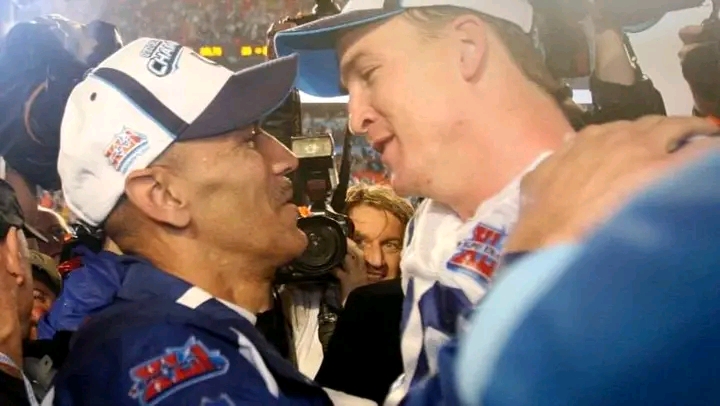A Revolutionary Approach to Leadership
Dungy’s coaching philosophy was rooted in respect, accountability, and trust. Unlike many of his peers, he didn’t believe in using fear as a motivator. “You don’t have to yell to be heard,” he often said. Instead, he focused on teaching, guiding, and mentoring. He believed in his players not just as athletes but as people, often taking time to understand their struggles and aspirations off the field.
This approach didn’t just make him a beloved coach; it made him a revolutionary one. By emphasizing mental preparation, discipline, and teamwork, Dungy’s teams consistently outperformed expectations. His philosophy proved that you could win—and win big—without compromising integrity or compassion.
Breaking Barriers
Tony Dungy’s legacy extends far beyond his coaching record. In 2007, he became the first African American head coach to win a Super Bowl, leading the Indianapolis Colts to victory over the Chicago Bears. This milestone wasn’t just a personal achievement; it was a breakthrough moment for diversity in the NFL.
Dungy’s success opened doors for other minority coaches, challenging stereotypes and proving that leadership comes in many forms. His humility and grace in the face of adversity set a powerful example for others to follow.
The Faith That Anchored Him
Faith was the cornerstone of Tony Dungy’s life and career. A devout Christian, he often spoke about how his beliefs guided his decisions on and off the field. Whether dealing with personal tragedy—such as the loss of his son—or professional challenges, Dungy’s faith provided him with strength and perspective.
He didn’t impose his beliefs on others but lived them openly and authentically, earning admiration from players and peers alike. His faith informed his unwavering commitment to integrity, fairness, and kindness.
A Lasting Impact
Tony Dungy’s influence continues to resonate. He’s a mentor to countless players and coaches, many of whom credit him for shaping their careers and character. Off the field, Dungy is a vocal advocate for fatherhood, education, and community involvement, using his platform to inspire positive change.
In a league known for its intensity, Tony Dungy proved that quiet strength can be just as powerful—if not more so—than bluster and bravado. His legacy isn’t just about wins and losses; it’s about the lives he touched and the barriers he broke. The quiet power of Tony Dungy is a testament to the idea that true leadership is not about volume but about vision, values, and the courage to lead with heart.

